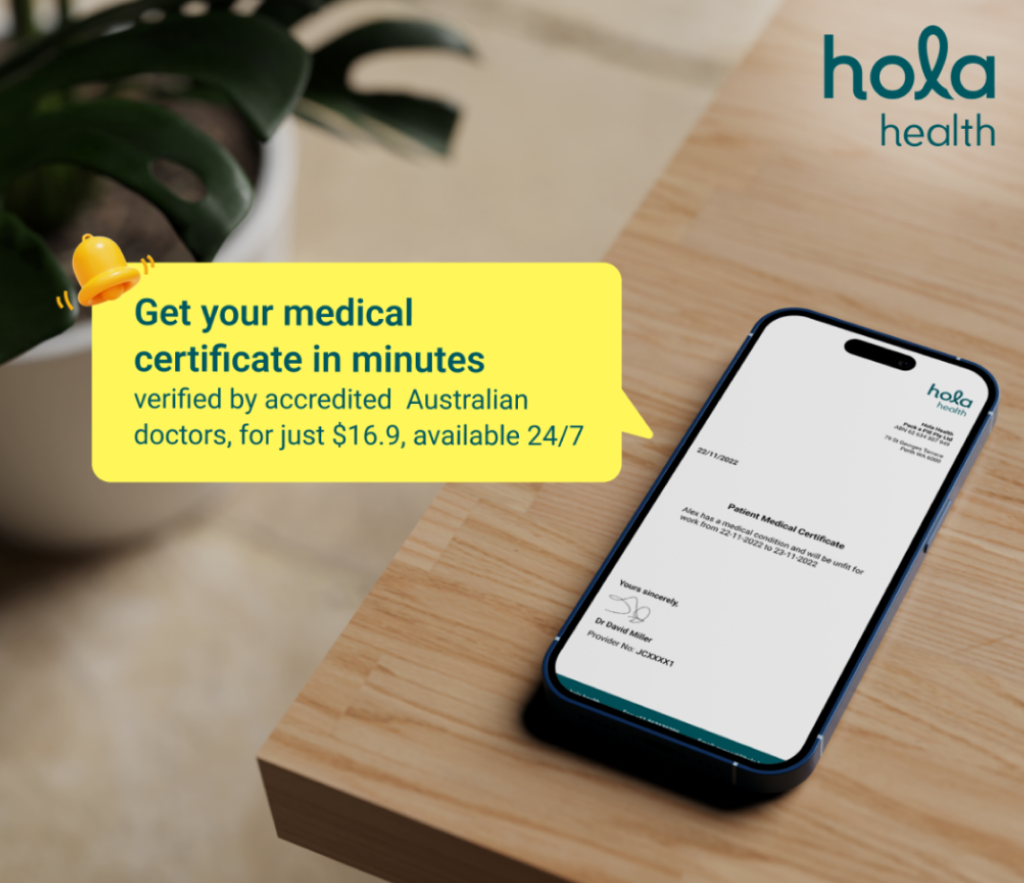Brain Fog Treatment
Speak to an AHPRA-accredited online doctor regarding brain fog within minutes from anywhere in Australia, 24/7.
About brain fog

Medically reviewed by Dr. Ammar AL-ANI, MBChB, CCBST, AMC
When to consult a doctor for brain fog?
You should consult a doctor for brain fog if:
- It persists for several days or weeks without improvement.
- It begins to interfere with your daily activities, memory, focus, or work.
- It’s accompanied by other concerning symptoms like severe headaches, dizziness, vision changes, or mood shifts.
- You’ve recently had COVID-19, a viral infection, or a head injury.
- You suspect it might be linked to medication side effects, hormonal changes, or an underlying health condition like thyroid issues or depression.
What does brain fog feel like?
- Mental cloudiness or heaviness in your head
- Trouble focusing or concentrating on tasks
- Forgetfulness like struggling to recall names, appointments, or why you walked into a room
- Slowed thinking or difficulty processing information
- Feeling mentally exhausted even after a full night’s sleep
- Disconnection like you’re mentally “on autopilot” or not fully present
What causes brain fog?
Brain fog has many possible causes, often linked to lifestyle, health conditions, or medications. Here are the common causes of brain fog:
- Lack of sleep: Poor sleep quality or not enough rest can slow your thinking and concentration.
- Chronic stress or anxiety: High stress hormones disrupt memory and focus.
- Poor diet: Deficiencies in B vitamins, iron, omega-3s, or dehydration can affect brain function.
- Hormonal changes: Pregnancy, menopause, thyroid issues, or hormonal imbalances can trigger mental fog.
- Post-viral effects: After illnesses like COVID-19 or flu, many people report lingering cognitive sluggishness.
- Certain medications: Antihistamines, sedatives, and some painkillers may cloud mental clarity.
- Medical conditions: Depression, anxiety, fibromyalgia, anaemia, chronic fatigue syndrome, or autoimmune disorders.
- Alcohol and substance use: Can impair memory and focus.
- Screen time overload: Excessive digital exposure can exhaust mental bandwidth.
What are the symptoms of brain fog?
The common symptoms of brain fog include:
- Difficulty concentrating or staying focused on tasks
- Forgetfulness: Misplacing things, missing appointments, or struggling to recall words
- Mental fatigue: Feeling mentally drained even after light activities
- Confusion or disorientation: Struggling to process information clearly
- Slow thinking: Taking longer than usual to make decisions or complete tasks
- Feeling spaced out or detached from your surroundings
- Poor memory: Particularly short-term memory lapses
- Difficulty finding the right words or following conversations
- Irritability or frustration linked to cognitive sluggishness
How to get rid of brain fog?
Clearing brain fog starts by identifying and addressing its root cause. Prioritising good sleep hygiene is essential. Aim for 7–9 hours of quality sleep per night. Stay hydrated, as even mild dehydration can impair focus and memory.
A balanced diet rich in omega-3 fatty acids, leafy greens, berries, nuts, and whole grains supports brain health. Reducing processed foods, alcohol, and excess caffeine can also improve mental clarity. Incorporating daily exercise even a brisk walk boosts blood flow to the brain and improves mood and concentration.
Managing stress through mindfulness practices like meditation, breathing exercises, or yoga is helpful. If brain fog persists despite these lifestyle adjustments, consult a GP via telehealth or in person.
What are the tips to improve memory and thinking?
Boosting memory and sharpening thinking skills is totally doable with some consistent habits. Here are some practical, evidence-based tips:
- Get quality sleep: Aim for 7–9 hours nightly. Sleep is crucial for memory consolidation and cognitive function.
- Stay physically active: Regular exercise improves blood flow to the brain and supports mental sharpness.
- Eat brain-friendly foods: Include omega-3-rich fish, berries, leafy greens, nuts, whole grains, and plenty of water.
- Challenge your mind: Puzzles, reading, learning new skills or languages, and memory games help keep your brain agile.
- Practise mindfulness or meditation: It reduces stress and improves focus and working memory.
- Stay socially connected: Engaging conversations and social activities boost mental resilience.
- Manage stress well: Chronic stress impairs memory; use relaxation techniques or hobbies you enjoy.
- Limit alcohol and avoid smoking: Both negatively impact cognitive health over time.
Which vitamin deficiency causes brain fog?
Several vitamin deficiencies can contribute to brain fog. The most common ones include:
- Vitamin B12: A deficiency can cause memory problems, difficulty concentrating, and fatigue.
- Vitamin D: Low levels are linked to mood issues, mental sluggishness, and poor cognitive performance.
- Vitamin B1 (Thiamine): Important for nerve function; deficiency can lead to confusion and poor memory.
- Folate (Vitamin B9): Essential for brain function and emotional health and low levels can cause mental fatigue and fogginess.
- Iron: While technically a mineral, iron deficiency affects oxygen delivery to the brain, causing tiredness and cognitive clouding.
How can I get an online doctor consultation for brain fog?
Getting an online doctor consult is simple via Hola Health. Just choose a consultation type, fill in your details and make payment. Speak with an online doctor within 15 minutes and seek medical advice for brain fog within minutes.
How does brain fog affect my mental health?
How do I get a referral online through Hola Health?
Are Hola Health's web doctors the same as your regular GPs?
Can I get access to an online doctor late at night or on weekends?
Yes, Hola Health offers 24/7 telehealth services, including after-hours and weekend appointments. Whether it’s a restless night or a busy Sunday, you can book and speak to a doctor when it works for you.
How can I get a mental health care plan?
Getting the support you need is easier than ever. Here’s how you can access a Mental Health Treatment Plan (MHTP) through Hola Health in a few simple steps:
- Choose your appointment type & fill in your details: Visit Hola Health, select a ‘Mental Health Care Plan’ appointment, and complete a quick form with your details.
- Add your Medicare and payment details: If you have a valid Medicare card, your consultation may be 100% bulk billed. Add your Medicare info and confirm your payment details if needed.
- Book your preferred appointment time: Pick a convenient time from the available slots to chat with an AHPRA-registered online doctor.
- Speak to a doctor & get your plan: During your call, discuss how you’ve been feeling. If eligible, the doctor will create a personalised Mental Health Treatment Plan.
- Receive your Mental Health Care Plan via email: If approved, your plan will be sent straight to your inbox.
How can we help?
Hola Health makes it easy to access the care you need, anytime, anywhere. Gain instant access to licensed online doctors and health practitioners within minutes.
- Online doctor consults 24/7: Speak to an AHPRA-registered doctor anytime, day or night, from the comfort of your home.
- Instant medical certificates online: Need time to rest and recharge? Get a valid online medical certificate for work or uni in minutes.
- Instant scripts for common medications: No need to wait for a clinic appointment. Request new scripts online within 15 minutes.
- Online GP referrals: Get quick online referrals for blood tests, mental health support, or specialist consultations if needed.
- Mental Health Care Plans: If brain fog is affecting your emotional well-being, you can access a bulk-billed Mental Health Care Plan (if eligible) via telehealth.
- Online chemist delivery: Order your medications and have them delivered to your door.
Talk to a doctor today
Instantly connect to a registered practitioner within 15 minutes from anywhere in Australia, 24/7 for:
- General consults
- New & repeat scripts
- Referrals
- Medical certificates
- Mental health plans

Read more about brain fog
Access telehealth services
Doctors Brisbane | Doctors Melbourne | Doctors Perth | Doctors Sydney | Doctors near me | Doctors Canberra | Doctors Adelaide | Doctors Darwin | Doctors Hobart
After hours Doctor Brisbane | After hours Doctor Melbourne | After hours Doctor Perth | After hours Doctor Sydney | After hours Doctor Hobart | After hours Doctor Gold Coast | After hours Doctor Canberra | After hours Doctor Adelaide | After hours Doctor Darwin | After hours GP | After hours doctor
Medical certificate | Medical certificate online for work | Medical certificate for school | Medical certificate for Uni | Medical certificate for stress | Carer’s leave certificate | Medical certificate NSW | Medical certificate QLD | Medical certificate VIC | Medical certificate WA | Doctors certificate online | Multi-day Certificate | Sick certificate online | GP medical certificate | Doctors note | Telehealth medical certificate | 2-day medical certificate | Medical certificate for sick leave
Instant scripts | eScript | Online prescriptions | Online prescriptions Sydney | Online prescriptions Melbourne | Online prescriptions Perth | Online prescriptions Brisbane | Online Rx prescription
Online referrals | Blood test referral | X-Ray referral | Pathology referral | Radiology referral | Specialist referral | Gynaecologist referral | Audiology referral | Ophthalmologist referral | Paediatrician referral | Ent specialist referral | Endocrinologist referral | Dermatologist referral | Urologist referral | Gastroenterologist referral
Telehealth appointment | Online Doctor | Bulk Billing Doctors | Doctors on-demand | Instant consult | Covid antiviral | Dial a Doctor | Online GP | Doctor appointment | Bulk-billing doctors | Telehealth pricing | GP online chat | Australian doctor | Web doctor | Home doctor | 24-hour doctor















